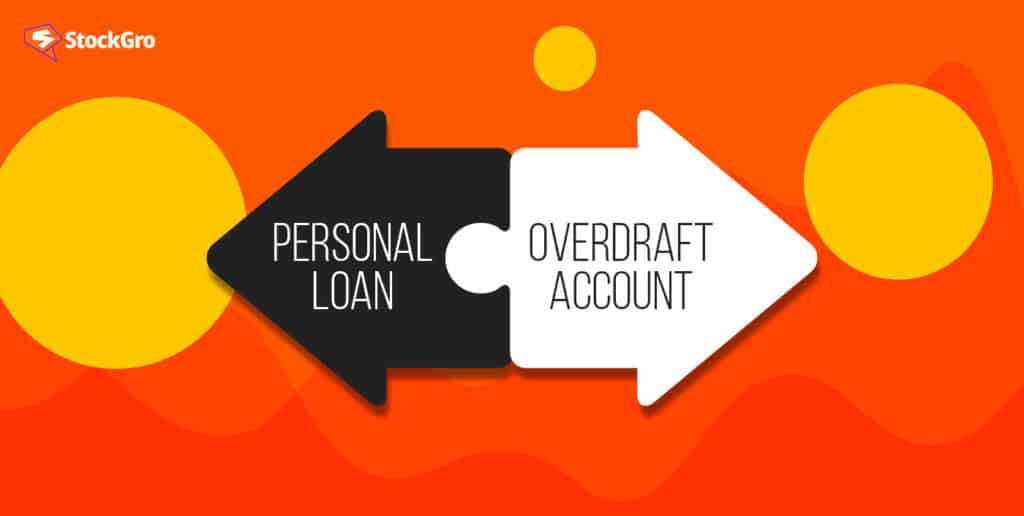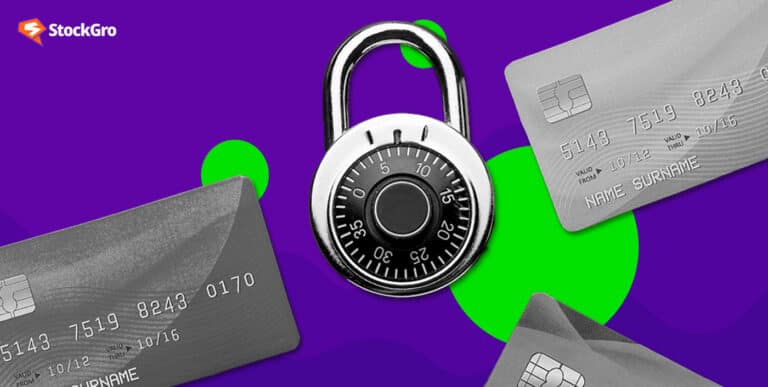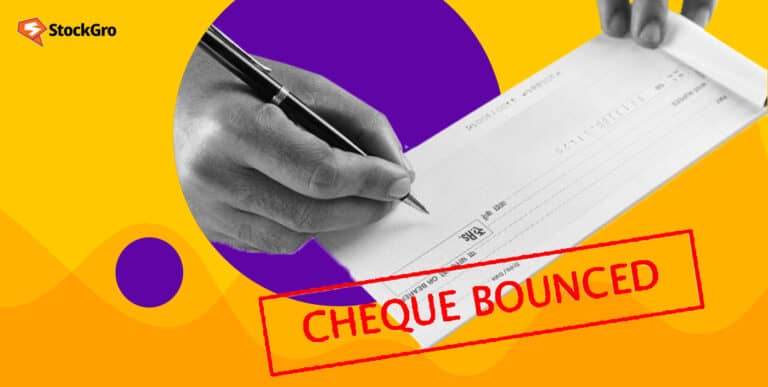
We often require financial assistance with credit for varied requirements. With so many options, it can be confusing to choose one. In this article, we will talk about personal loan vs overdraft account choices. These two come with their unique benefits and demands that must be understood to make an informed decision as per your requirements. In this article, we will look at factors that help in choosing between personal loans and overdrafts.
What is a personal loan?
A personal loan allows an individual to borrow lump sum money to cover a range of expenses. This loan is paid back in fixed monthly installments over a fixed period. The recipient is required to pay back the amount with a pre-decided rate of interest.
What is an overdraft account?
Overdraft refers to a line of credit offered by the bank that allows individuals to withdraw more money than they have in the account till a predetermined limit. Flexibility and quick access to funds are the key highlights of the overdraft facility.
Key differences in personal loan and overdraft account
With knowledge of what these two categories of financing entail, let us look at factors that you can also consider as the overdraft vs personal loan pros and cons.
- Availability
When comparing the best uses for personal loans and overdraft accounts, you must consider the availability of both. A personal loan requires individuals to submit their documents and seek approval after which the funds are transferred.
Further, if another personal loan is to be obtained, the entire process must be redone. As against this, the overdraft amount is once approved and can be availed seamlessly later at any moment one requires.
- Rate of interest
When considering interest rates on personal loans vs overdrafts, personal loans come with a predetermined rate of interest which is fixed and must be paid. As against this, there is no interest charge on an overdraft account unless the funds are used.
However, you must remember that the rate of interest for overdrafts is usually more than that of personal loans.
- Repayment method
Another factor that differentiates personal loans from overdraft accounts is the repayment methodology. The repayment of a personal loan is clarified at the beginning with a set procedure of repayment amount and period clearly defined. As against this, repayment of an overdraft is relatively more flexible.
- Credit limit modification
With added general flexibility in the overdraft arrangement, you have a varying credit limit in the overdraft account where you can use the amount of funds they require.
You can withdraw more funds or less, depending on their requirements.
As against this, in the case of a personal loan, the credit amount is determined at the beginning and cannot be changed after the loan is processed.
- Loan tenure
When exploring the advantages of personal loans over overdrafts, think about the loan tenure. A personal loan can be paid back in 5-7 years, depending on the terms set in the agreement. As against this, the loan payback tenure for an overdraft is usually a few days to months at max.
Also Read: Mezzanine capital: The secret weapon of ambitious companies
- Prepayment charges
Lastly, in case you have the funds ready before the prescribed schedule, you can easily deposit them in your account and clear the overdraft without any charges. On the contrary, there are prepayment charges imposed on prepaying the loan amount that adds to the cost.
With a careful assessment of these factors, individuals can weigh the pros and cons of an overdraft account vs an unsecured personal loan and move forward with their decision.
How to decide between a personal loan and an overdraft account?
With knowledge of the differentiating factors, let us now look at pointers that can assist individuals decide between the two options for availing funds. These include:
- Short-term requirements
If you only require funds for a short period and can commit to repaying them quickly, then availing funds through an overdraft might be the best choice for you. As against this, if either your requirement is long-term or you can not resource funds quickly, you have no other option but to depend on personal loans for your monetary requirements.
- Long-term requirements
If you are looking for funds for a longer period and cannot pay back within a few months, then personal loans are the ideal choice. They have a lower rate of interest and a scheduled payment cycle that can assist in repaying the loan in time.
- Credit score
The credit score impact of personal loans and overdrafts is immense and must be carefully considered before opting for either of the two options. The credit score helps in comparing overdraft and personal loan eligibility. Keep your credit score in check to be eligible for the option you wish to seek.
- Financial requirements and discipline
Besides all the mentioned factors, it is crucial to also consider personal spending habits while determining the ideal choice. If you often indulge in impulsive spending then following a structured payment plan with a personal loan can be better. However, if this isn’t the case then both the choices are open based on requirements.
As a result, carefully assess your requirements, and analyse your short and long-term goals to choose between these two financing opportunities.
Also Read: Investing in time: The crucial role of time value of money in finance
Why is it better to apply for an overdraft rather than a loan?
When considering whether to opt for an overdraft/OD loan or a personal loan, an OD loan might be more suitable for you if you seek flexibility and quick access to funds.
Overdraft facilities allow you to borrow money up to a set limit without undergoing lengthy approval processes every time you need funds. This convenience is especially useful for short-term needs or unexpected expenses, as you can access the amount needed without the obligation to borrow a fixed sum.
Another huge advantage of an OD loan is the interest structure. Unlike personal loans, where interest is charged on the entire borrowed amount, overdrafts charge interest only on the amount you utilise. This feature means that if you don’t end up using the full overdraft limit, you save on interest payments.
Overdraft loans also come with more flexibility in terms of repayment. You can repay the amount borrowed as soon as you have the funds, avoiding the structured monthly installments associated with personal loans. This flexibility is beneficial for those with irregular income or short-term cash flow issues.
However, it’s important to note that while overdrafts offer more convenience and flexibility, they often come with higher interest rates compared to personal loans. As a result, they are ideal for short-term use but may not be as cost-effective for long-term borrowing.
All in all, it is better to apply for an OD loan because it gives you quick, short-term access to funds without committing to a fixed repayment schedule or loan amount.
Conclusion
Both personal loans and overdraft accounts have their merits and demerits based on the circumstances. This is why there is no clear answer to which financing option is better as it varies from individual to individual and circumstance to circumstance. Carefully consider all the factors to not only make an informed decision for your present requirements but also to ensure a financially secure future. To learn more about personal finance, consider StockGro. Good luck!

